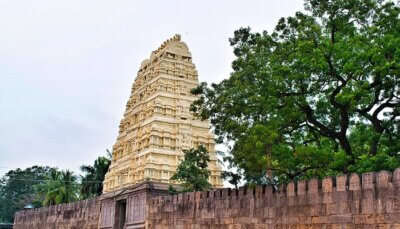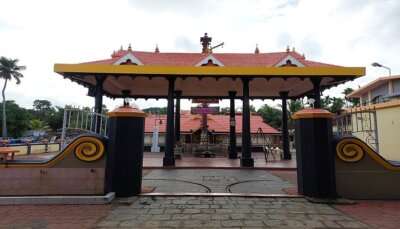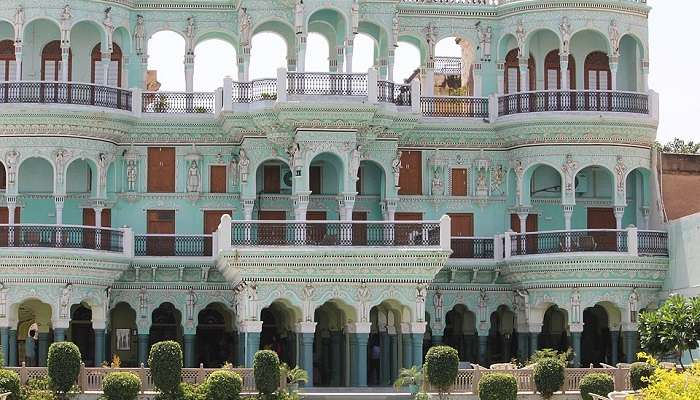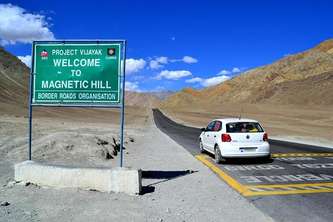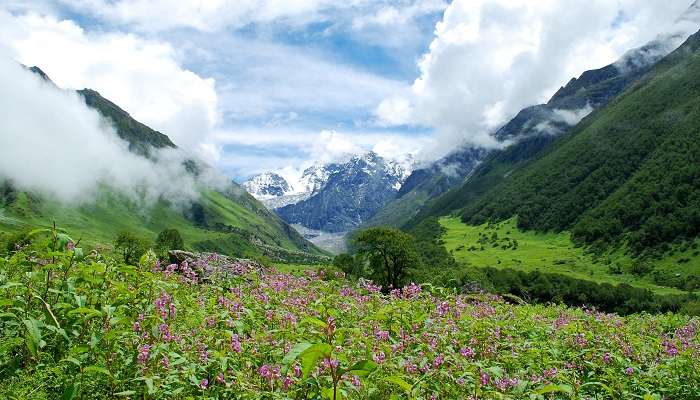A Guide To Visit Ranganatha Temple On Your Next Andhra Pradesh Trip In 2026
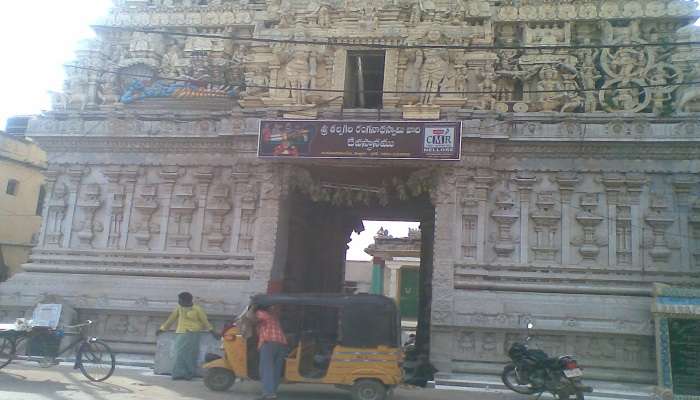
The Ranganatha Temple is an architectural and spiritual masterpiece dedicated to Lord Ranganatha, a reclining form of Vishnu. This Temple is one of the finest examples of Dravidian architecture, with exquisitely carved pillars, ornate sculptures, and a towering gopuram at the entrance, signifying the greatness of the ancient style of temple architecture. Located in a serene environment, the Ranganatha Temple represents more than just a significant pilgrimage centre; it embodies rich cultural and religious traditions. There is a sanctum sanctorum wherein lies a brilliant idol form of the presiding deity, Lord Ranganatha. The historic value and architectural excellence make the Temple one of the significant places visited by those searching for spirituality and culture in the region.
Ranganatha Temple Guntur
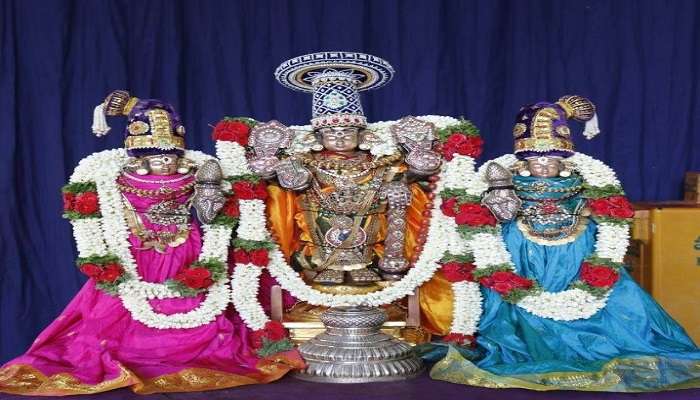
At Ranganatha Temple, daily worship and artis are a prime activity. In the rituals performed in the morning and evening, offerings of flowers, incense, and light are presented to Lord Ranganatha’s deities. Devotional songs and chants accompany these ceremonies, charging the atmosphere with reverence and spirituality.
The Temple regularly holds educational discourses on the Bhagavad Gita, Srimad Bhagavatam, and other Vedic scriptures. The sessions are run by highly learned devotees who deeply explain Lord Ranganatha’s consciousness and spiritual philosophy. The teachings focus on improving participants’ knowledge about spiritual practices and principles.
Also Read: Anantapur Restaurants
Events At Ranganatha Temple
Ranganatha Temple hosts many events daily, whether it is an educational discourse on Bhagvat Geeta or the knowledge of Veda. We have curated a list of events held at the temple, let’s dive into it:
1. Daily Devotional Services
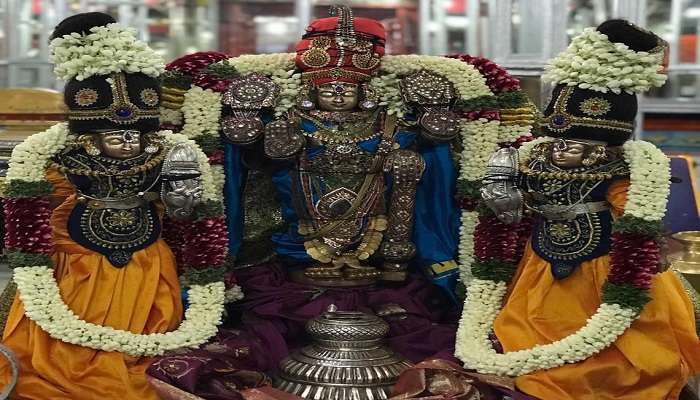
The daily services offer the core of activities that establish a spiritual rhythm throughout the day at Ranganatha Temple. Mangala Arati—a pre-dawn ritual wherein the deities are ceremoniously awakened and offered, as tradition would have it, things like flowers, incense, and light—is where morning services begin. Recitations from sacred texts and devotional songs follow this. Food is offered to the deities during the afternoon and evening services, while in the evening Arati, many lights and hymns are chanted. This constitutes not only an act of devotion but also an opportunity for devotees’ involvement in the intricate traditions of Lord Ranganatha worship. The daily services provide an opportunity for great spiritual bonding amongst the congregation.
Tip: Come early to get the most out of morning and evening rituals. This will allow you to settle in and become more deeply engaged in devotional practices and community atmosphere.
2. Festivals And Special Celebrations
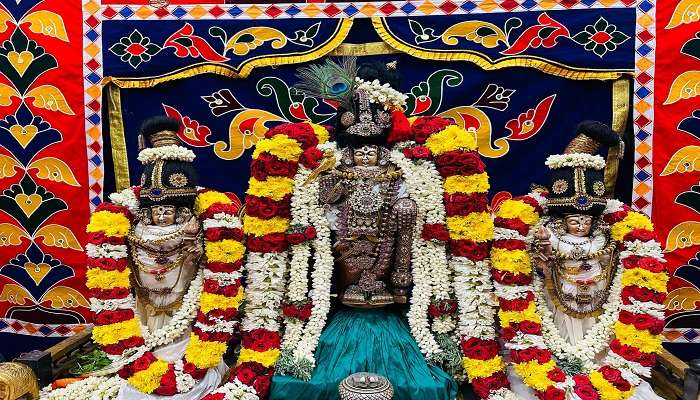
Ranganatha Temple celebrates all the major Hindu festivals with great enthusiasm and pomp. Festivals like Janmashtami, Radha Ashtami, and Gaura Purnima are celebrated by beautifully decorating the temple and the surrounding areas. This is accompanied by special pujas and processions full of verve. During Janmashtami, the temple is decorated with flowers and lights, the child pastimes of Lord Ranganatha are enacted throughout the day, and a midnight program is held where the birth of Lord Ranganatha is celebrated. Devotional songs and unique offerings are prepared for the Radha Rani and Radha Ashtami appearance day.
Gaura Purnima is celebrated with processions and kirtans to glorify Lord Chaitanya Mahaprabhu’s advent. Community celebrations like these bring devotees together in revelry and service to the Lord, making this a real highlight of the Temple’s yearly calendar.
Tip: If you want to plan significant festivals, it is good to check with the Temple’s event schedule. During such busy times, early arrival will help you find a place to enjoy all the celebrations.
Related Post: Bapatla
3. Spiritual Discourses And Classes
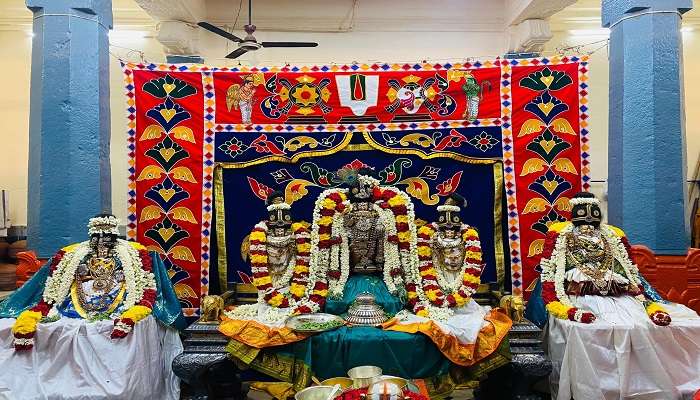
The Temple offers an entire range of spiritual discourses and classes on the Bhagavad Gita, Srimad Bhagavatam, and other Vedic scriptures, conducted by mature devotees and scholars who school the congregation in both the philosophical and practical aspects of Lord Ranganatha consciousness. The discourses usually encompass explanations of important verses, application of the teachings in their lives, and question-answers so the audience can grasp the concepts. The Temple also offers regular classes on various topics related to devotional service, spiritual practice, and personal growth. Such educational programs can improve the understanding of Lord Ranganatha’s teachings for travellers and help people on the path of spirituality.
Tip: Bring a notebook and pen to jot down some pointers and your reflections after spiritual discourses. This will be very handy to recall and put into practice in day-to-day life.
4. Kirtans And Bhajans

Devotional Kirtans and bhajans create the heart and soul of the intense devotional atmosphere at Ranganatha Temple. Musical congregations are organized during daily rituals and festive practices, during which the sincere reiteration of the Hare Lord Ranganatha maha-mantra, among other hymns and devotional songs, is sung. The kirtans are executed by expert musicians and singers, accompanied by the harmonium, double-headed mridanga, and kartals.
Participants are themselves caught up in the singing and dancing, producing a vibrant and energetic atmosphere that replenishes the soul. It elevates the soul, for the exercises are not a way of worship but a means of expression of faith and creation of bonds with the heavenly forces through the living energy of music and engagement in manifestation.
Tip: Sing along in unison with the kirtans and bhajans, and dance. The more one participates, the more profoundly one connects to the event and experiences a moment of joy. That will be rewarding in its way.
Related Post: Bojjannakonda
5. Community Service And Outreach Programs
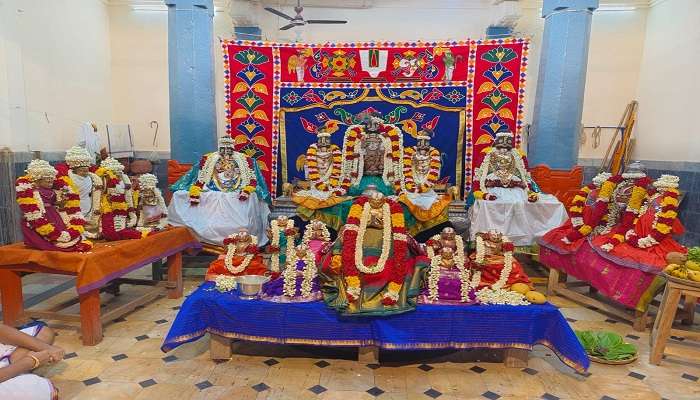
One thing in which Ranganatha Temple is deeply committed is community service and outreach, which are part of the mission to serve society as part of its spiritual practice. Several programs are arranged through the Temple for food distribution programs where prasadam is distributed among people experiencing poverty. Educational outreach includes classes and workshops on spiritual and personal growth.
Health camps promote medical care and health awareness in the local community. The temple is also involved in many environmental activities, such as tree plantations and cleanliness drives. All these programs help the community’s well-being and inculcate a feeling of compassion and service among individuals, thus aligning with ISKCON’s broader mission of welfare and harmony.
Tip: Engage in community service activities to learn more about the Temple’s outreach efforts, meet more people who care about making a difference, and volunteer to build the community spirit of carrying out this Temple’s mission.
You May Also Like To Read: Hotels Near Borra Caves
In other words, the Ranganatha Temple is deep and enriching in experience—it provides excellent spiritual understanding to the devotees and the visitors by colourfully adorning every day with worship, education through discourses, and vibrant cultural activity. Whether peace, spiritual knowledge, or belongingness, Ranganatha Temple presents a welcoming and uplifting atmosphere. It is a much-respected retreat for the upliftment of every individual and harmonious collectivism in society, as it works to spread the teachings of Lord Ranganatha consciousness, being involved in community service. So, plan your trip to Andhra Pradesh today to explore the place.
For our editorial codes of conduct and copyright disclaimer, please click here.
Cover Image Credit: YVSREDDY for Wikimedia Commons
Frequently Asked Questions About Ranganatha Temple
What are the prime attractions of Ranganatha Temple?
The famous daily worship ceremonies, enthusiastic kirtans, enlightening discourses on education, and festivals for Lord Ranganatha—these four major events have made Ranganatha Temple the supreme name in spirituality. The Temple's architectural beauty and serene surroundings enhance that spiritual experience.
What is the visiting time at Ranganatha Temple?
Generally, Ranganatha Temple is open from early morning to late evening. However, darshan, pujas, and special events occur at specified hours. Thus, it would be good to check the Temple's official website or contact them directly for any changes to the schedule.
How can I join the festivals and special events at Ranganatha Temple?
You can join in festivals and other special events at Ranganatha Temple by checking the Temple's website or social media pages regarding what's occurring. While many events are open to everybody, it is invariably good to come on time and follow the Temple's directions, if any.
How many dress codes are followed while visiting Ranganatha Temple?
Visitors usually visit Ranganatha Temple modestly and respectfully dressed. Typically, this would imply dressing in traditional or conservative attire that covers the body, like a long skirt or trousers, with tops having a sleeve. One may confirm the details of the dress code from the Temple in advance of one's visit.
Can I volunteer or do community service at Ranganatha Temple?
Yes, Ranganatha Temple does encourage volunteerism and community service. You can contact their administration or log onto their website for volunteering opportunities or other contributions. Volunteering is an excellent way to engage with the community and contribute to various charitable initiatives run by this Temple.
People Also Read:
Bhavishya Badri Temple Bathu Ki Ladi Temple Baglamukhi Temple

Unveil the hidden treasures of the globe and turn every travel dream into reality. As a Content Writer, I am passionate enough to craft stories from ancient wonders to modern marvels. My words paint the picture-perfect itinerary for unforgettable experiences. Let my words be your trusted guide to immerse in the diverse culture and discover the beauty of the unknown.



